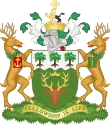Bakers Arms
Bakers Arms is an intersection and arguably a district on the boundary of Leyton and Walthamstow, in the London Borough of Waltham Forest. It is named after a former public house which stood at the junction of High Road Leyton, Hoe Street (both A112) and Lea Bridge Road (A104). The pub's name was derived from the nearby almshouses for members of London's baking trade, which were completed in 1866. The first record of a publican at the Baker's Arms was in 1868.[1] The pub closed in 2010, and the premises now operate as a betting shop.[2] There are several food stores, pubs and cafes, and a variety of other retail outlets.
| Bakers Arms | |
|---|---|
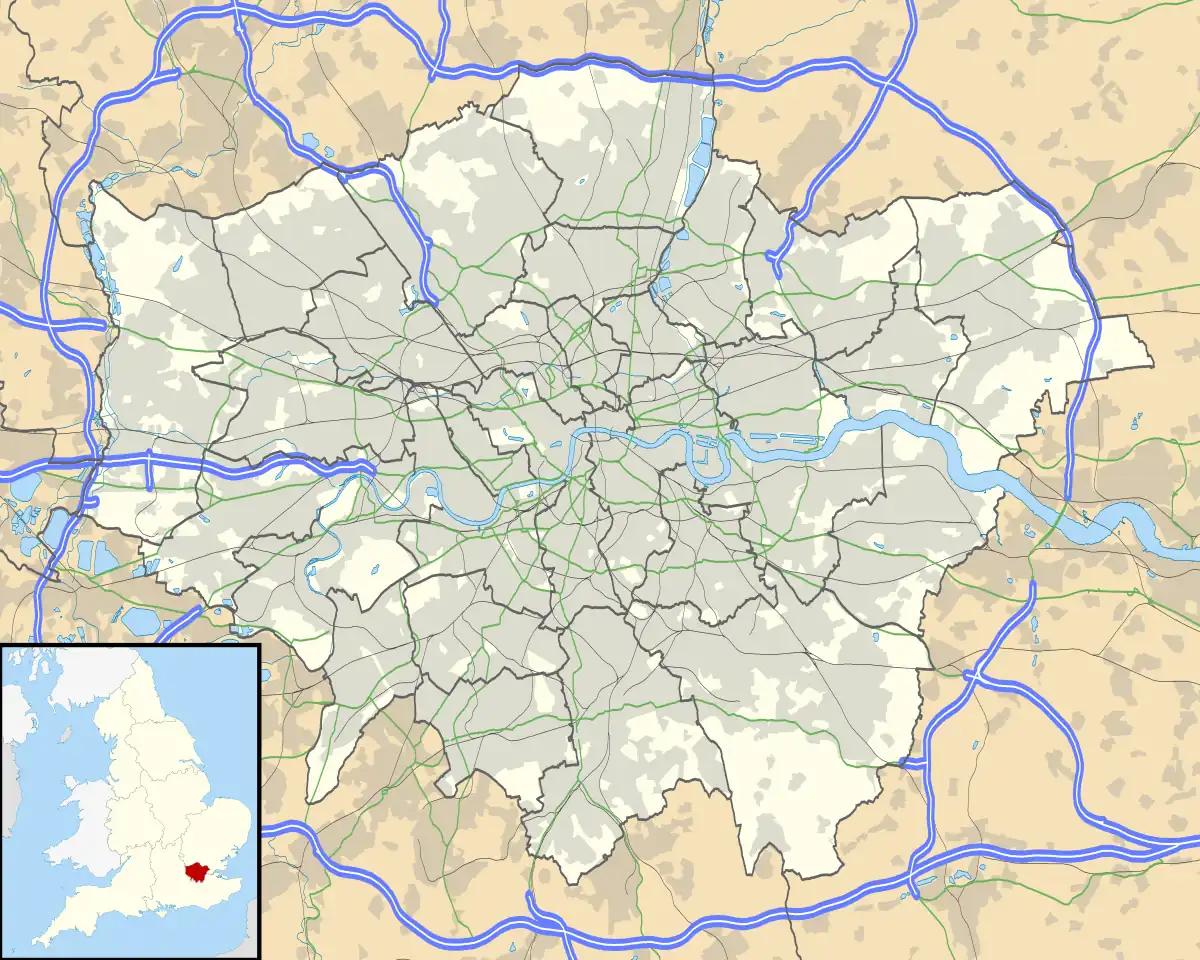 Bakers Arms Location within Greater London | |
| Ceremonial county | Greater London |
| Region | |
| Country | England |
| Sovereign state | United Kingdom |
| Post town | London |
| Postcode district | E10/E17 |
| Dialling code | 020 |
| Police | Metropolitan |
| Fire | London |
| Ambulance | London |
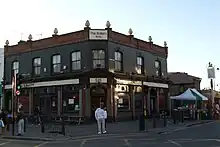
Transport
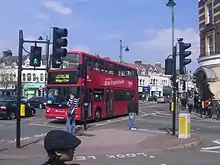
Bakers Arms is a hub on the London Bus network. Bus routes passing through the junction are 20, 55, 56, 69, 97, 230, 257, 357, N26, N38, N55, W15, W16 and W19. The closest railway station is Leyton Midland Road on the Gospel Oak to Barking line.[3]
The Bakers' Almshouses
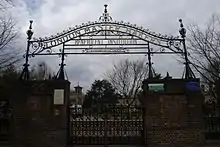
The Bakers Arms pub was itself named after the almshouses approximately 100 yards further south in Lea Bridge Road. They were built between 1857 and 1866 by the Master Bakers' Benevolent Institution (now the Bakers' Benevolent Society)[4] for "any respectable member of the baking trade fallen into poverty, eligible according to the rules, or to the widow of such". The 52 alms houses were built on three sides of a square, with turrets at the angles, in the Italianate style by the architect Thomas Edward Knightley.[5] On 24 September 1916, twenty two of the flats were damaged by bombs dropped by the German Navy Zeppelin L31.[6] In the late 1960s, the almshouses were compulsorily purchased by the Greater London Council for a road widening scheme. The last retired baker moved to new accommodation in Bakers Lane, Epping in 1971. However, the almshouses were saved from demolition because of their architectural merit and were given a Grade II Listed Building status.[7] The buildings were subsequently purchased by Waltham Forest Council and refurbished as residential flats.[8]
References
- Wilding, Kevan; Harris, Stephen Harris (4 October 2011). "Baker's Arms, 575 Lea Bridge Road, Leyton E10". pubshistory.com/. Retrieved 7 December 2013.
- Macfarlane, Mhairi (22 February 2010). "Bakers Arms pub in Leyton re-opens as bookmakers". Waltham Forest Guardian.
- Transport for London - Buses from Leyton Green (Baker’s Arms)
- The Bakers' Benevolent Society Archived 31 March 2012 at the Wayback Machine
- A History of the County of Essex: Volume 6 (1973), (pp. 174-184)
- Ian Castle, London 1914–17: The Zeppelin Menace, Osprey Publishing 2008, ISBN 9781846032455 (p.71)
- Historic England. "Bakers Almshouses, Leyton E10 (1191128)". National Heritage List for England. Retrieved 9 January 2012.
- Waltham Forest Guardian: Historic homes create "oasis" in Leyton, 9 April 2010.
